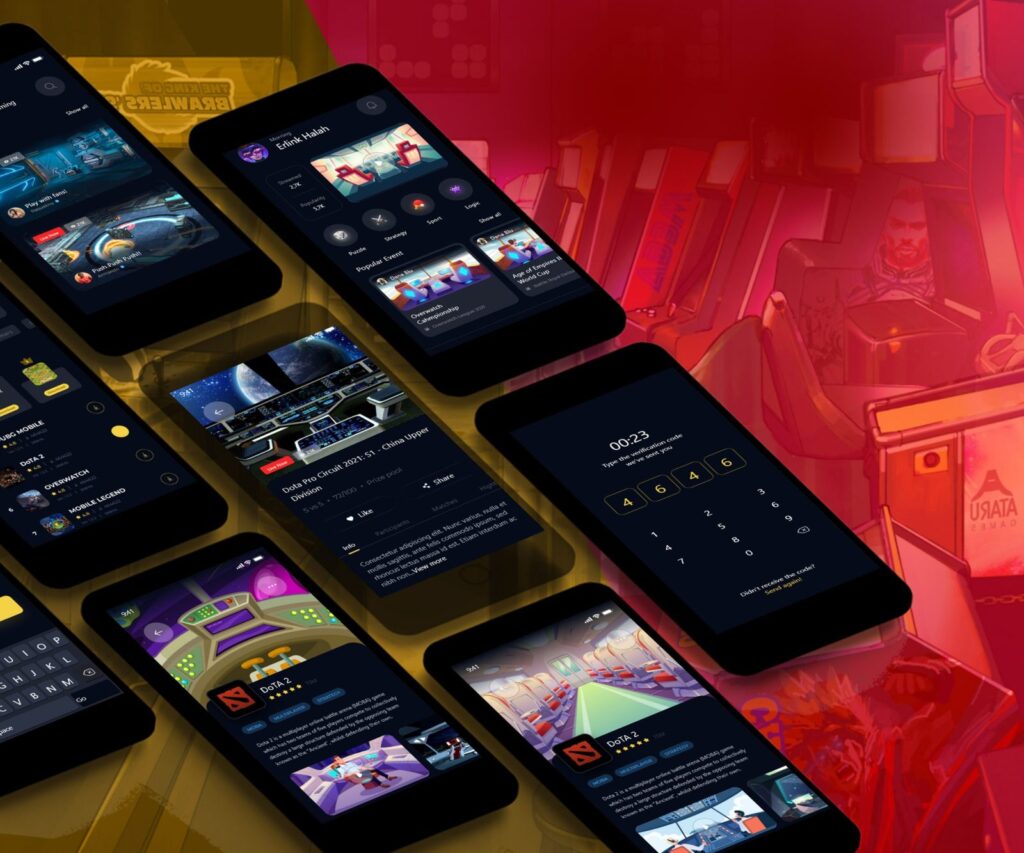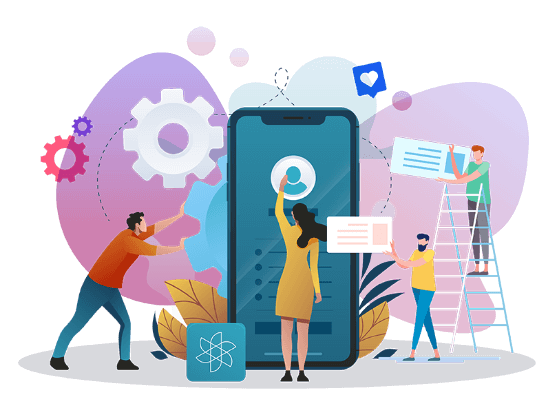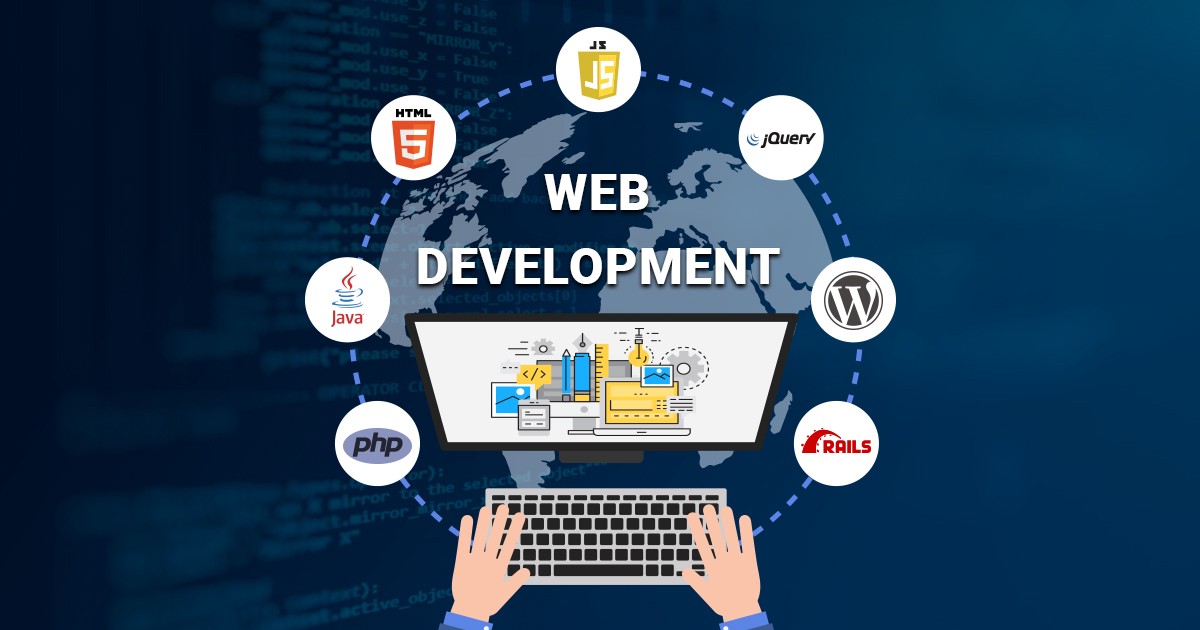Nowadays, custom mobile app development has become an important aspect of business growth. For instance, many businesses recognize the importance of having a mobile presence. Furthermore, deciding between iOS and Android platforms remains to be a daunting decision for businesses to make. However, in the blog, we will discover about mobile app development in detail. Additionally, we will differentiate between Android and IOS platforms as well.
What is custom mobile app development?
Custom mobile app development refers to the process of designing, creating, and deploying mobile applications according to the needs of the businesses. Moreover, the custom development process creates mobile applications from scratch. Additionally, these apps provide a complete user-friendly interface to the users of the business.
Nowadays, android and IOS are the most demanding mobile operating system in the World. Furthermore, these both hold the largest market share in operating systems as well. Due to their complete dominance, the user prefers both of these operating system applications.

What are the key differences between iOS and Android?
Following are the key differences between IOS and Android. Let’s one by one understand about the differences:
- Programming Languages and Tools: IOS apps primarily work by using Swift or Objective-C tools. On the other hand, Android apps use Java or Kotlin tools. Furthermore, it depends on your personal preference in opting either for IOS or Android.
- Development Cost and Time: IOS app development has a reputation for being more cost-effective and quicker in comparison to Android app development. As IOS uses less fragmentation, in comparison to Android. Hence, Android uses higher fragmentation and it proves to be more costly than IOS.
- Distribution and Monetization: IOS apps have official distribution rights with the Apple App Store. In comparison, Android has official distribution rights with the Google Play Store. Moreover, IOS apps undergo strict monitoring while Android apps don’t undergo strict monitoring before deployment.
- User Experience and Design: Next on designing experience. The IOS apps follow Human Interface Guidelines (HIG). In comparison, the Android apps follow the material design. Hence, android apps make sure to utilize exciting colors and fonts for the applications.
- Design Guidelines: IOS emphasizes simplicity, clarity, and in-built design. Moreover, android apps focus on material design principles, including as bold colors and fonts.
What is the Development Process of IOS?
The development process of IOS primarily focuses on Xcode, Interface Builder, and Swift/Objective-C. Moreover, its process is known to provide stability and quality to users. Additionally, IOS uses a full control eco-system, which has few compatibility issues. However, the approval process of IOS can be strict in following compliance with the operating system.
What is the development process of Android?
The development process of Android primarily focuses on Android Studio and Java/Kotlin. Furthermore, android offers more flexibility than IOS but can result in high fragmentation. Additionally, Android supports powerful Android Studio, including an emulator and debugging features.
What are the factors to consider in selecting the best platform?
Choosing the right platform for custom mobile app development depends on several factors, including your target audience, budget, and available resources.
When deciding on various factors of custom mobile app development, it’s essential to evaluate several factors to enhance your decision:
- Target Audience and Market: Always have a deep understanding of your audience’s preferences. Additionally, consider factors like geographical location, demographics, and device usage. However, IOS devices are more demanding in some regions in comparison to Android.
- Furthermore, if your target audience is primarily in regions like North America and Western Europe, iOS may be a priority due to its strong market presence. While Android has a vast presence in Asian countries.
- App Purpose and Functionality: Next, have a thorough understanding of your app’s purpose and functionality. Moreover, if you require an app from a gaming perspective then IOS is a better choice because of its hardware. Furthermore, if you want an app for day-to-day business operations, then Android is not a bad option to choose.
- Budget and Resources: Another important factor is budget and resources. Furthermore, IOS requires a high budget and plenty of resources. On the other hand, Android requires less budget and resources.
- Monetization Strategy: Furthermore, if your app requirement is according to monetization, then consider the IOS platform as it is a better choice for monetization. For instance, IOS uses in-app purchase modes in apps. Hence making it a favorable platform for paid apps and in-app advertising. On the other hand, Android may have a large user base but its revenue stream is lower in comparison to IOS.
- Development Team’s Expertise: Next, the IOS requires a comprehensive development team. The team uses development language like Swift/Objective-C. While on the other hand, Android uses Kotlin/Java. Furthermore, the development team’s expertise differs according to the budget as well.
Conclusion
Choosing the right platform for custom mobile app development is an important decision that can significantly impact your app’s success. Moreover, always select the platform that aligns with your business objectives, target audience, and resources.
Additionally, be careful while considering multiple factors. Always remember every factor has its strengths and weaknesses. Before selecting the best platform, always discuss it with professional app designers. Furthermore, they have the expertise and experience to help you in making better decisions for yourself.
Moreover, whoever platform you use, be completely sure about your prioritization. Furthermore, both Android and IOS provide the best custom mobile app, but the final decision depends on your business needs.





